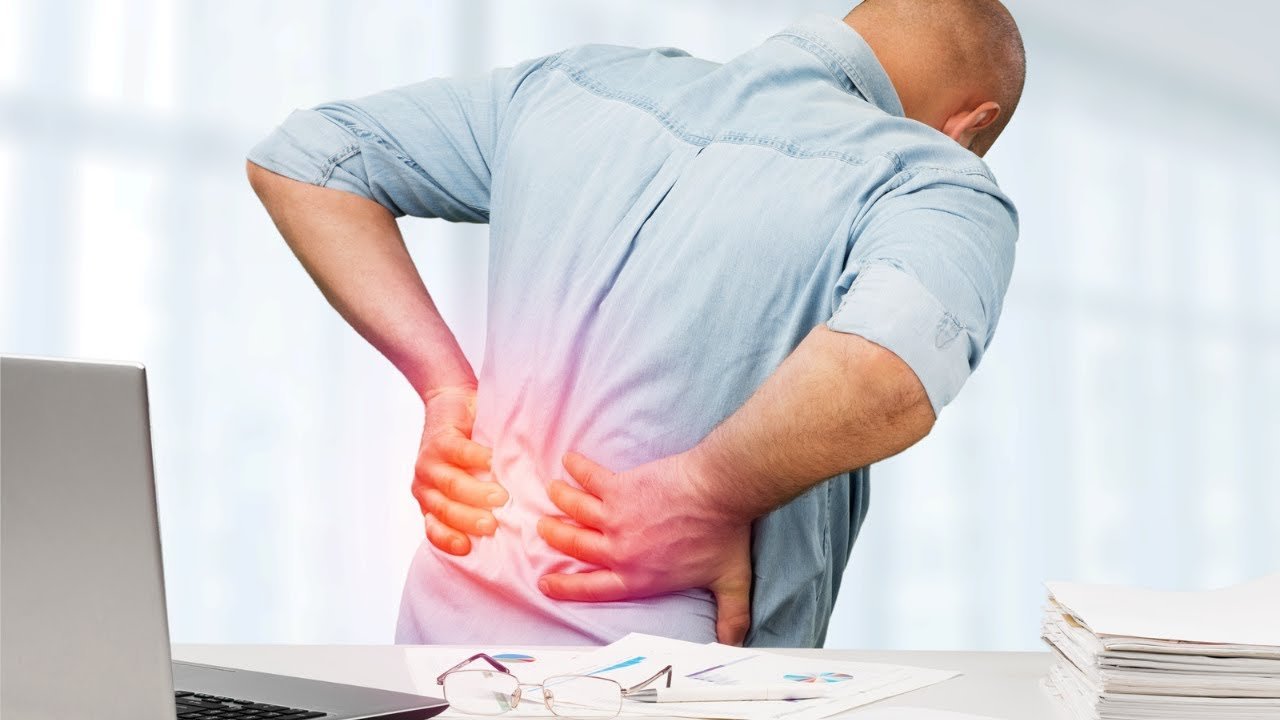Understanding Back Pain When Coughing
Back pain is a not-unusual infection that affects people of different ages. It can vary from a slight, worrying ache to extreme, debilitating pain that interferes with day-by-day sports. Understanding the man or woman of once more pain is step one toward finding a remedy.
Types of Back Pain When Coughing
Acute Back Pain
Again, acute pain generally lasts a few days to a few weeks. It often results from surprising trauma, including a fall or a clumsy motion. This type of ache is typically sharp and may be pretty extreme.

Chronic: Back Pain When Coughing
Chronic decreased lower back ache lasts for over three months and is much less commonplace than acute aches. It may be due to harm, but it’s far often linked to underlying conditions, which include arthritis or degenerative disc disease. Chronic pain can be regular or intermittent.

The Connection Between Coughing and Back Pain
What Causes Back Pain When Coughing
Experiencing pain again while coughing can be perplexing. However, there are logical reasons for this phenomenon.
Muscle Strain
One of the most commonplace reasons for once more ache while coughing is muscle stress. When you cough, your muscles agree unexpectedly and forcefully. If your decrease in muscle mass is already prone or stressful, this could cause tension and pain.
Herniated Discs
A herniated disc happens when the cushion-like discs between your vertebrae fall out of place or rupture. This can cause an excessive decrease in pain, particularly when coughing or sneezing because the motion exacerbates the stress on the affected nerve.
Underlying Conditions
Sometimes, back pain when coughing is a symptom of a more severe underlying circumstance, such as osteoarthritis, spinal stenosis, or a tumor. These situations can cause inflammation or compression of the spinal nerves, leading to aches that are triggered by coughing.
Identifying Symptoms and Diagnosis
Common Symptoms
back pain when coughing while coughing can present with many signs and symptoms. These may include a sharp ache, a dull pain, or a burning sensation. The ache might be localized to a selected region or radiate to other body elements, including the legs or fingers.
Diagnostic Methods
An accurate prognosis is critical for a powerful remedy. There are several methods healthcare specialists use to diagnose the reason for lower back pain when coughing.
Medical History
Your medical doctor will start by taking in-depth medical records. This consists of questions about your signs, any latest injuries, and your typical health. Understanding your clinical background can offer valuable clues about the purpose of your pain.
Physical Examination
A physical examination enables the medical doctor to assess your circumstances. They will examine your range of movement, muscle strength, and reflexes. This exam can assist in perceiving any physical abnormalities or regions of tenderness.
Imaging Tests
A herniated disc occurs even as the cushion-like discs amongst your vertebrae slip out of vicinity or rupture. This can cause intense lower back aches, especially at the same time as coughing or septic tests, which incorporate X-rays, MRI scans, and CT scans and provide targeted photographs of your backbone and surrounding tissues. These tests can display problems like herniated discs, fractures, or tumors that are probably causing your aches.
Ezing is because the movement exacerbates the stress on the affected nerve.
Treatment Options for Back Pain When Coughing
Home Remedies
For many people, domestic remedies can successfully alleviate back pain when coughing.
Rest and Ice
Resting your back and using ice packs can lessen infection and ease pain. However, avoiding extended mattress rest is vital, as this could weaken your muscle groups and lengthen healing.
Over-the-Counter Medications
Non-prescription pain relievers, combined with ibuprofen or acetaminophen, can help manage pain and reduce infection. Be high-quality, and take a look at the recommended dosages to keep away from facet effects.
Medical Treatments
If home remedies aren’t enough, scientific remedies are essential.
Prescription Medications
For immoderate pain, your physician can also additionally prescribe stronger medicinal tablets, which consist of muscle relaxants or opioids. These must be used with warning due to the threat of dependency and unique aspect consequences.
Physical Therapy
Physical treatment can strengthen other muscle groups, improve posture, and increase flexibility. A material therapist can create a customized exercise program for your specific goals.
Surgery
In rare instances, surgical treatment can be required to relieve the ache. Procedures like discectomy or spinal fusion can help accurately diagnose structural troubles causing the pain. Surgery is usually considered the most complicated option when other treatments have failed.

Prevention Tips
Maintaining Good Posture
Good posture is crucial for preventing returned pain. Keep your shoulders back and your back straight, and avoid slouching. Using ergonomic furniture can also help maintain proper posture.
Strengthening Back Muscles
Regular sporting activities that focus on your lower back muscle groups can help prevent pain. Activities like yoga, Pilates, and weightlifting boost your center and aid your spine.
Avoiding Heavy Lifting
Lifting heavy items incorrectly can stress your back. Always elevate with your legs, not your lower back, and avoid twisting your body while lifting.
Lifestyle Changes for Better Back Health
Regular Exercise
Engaging in normal physical activity allows you to hold your decreased lower back sturdy and flexible. Aim for a minimum of half an hour of workout on most days of the week. Activities like foot, swimming, and cycling are notable for once more health.
Healthy Diet
A balanced weight loss program rich in nutrients and minerals supports normal fitness, such as your return. Foods high in calcium and vitamin D, along with dairy products and leafy vegetables, are particularly beneficial for bone health.
Stress Management
Stress can contribute to muscle anxiety and backaches. Practice stress-decreasing techniques like deep breathing, meditation, and mindfulness to keep your stress levels under control.
When to See a Doctor
Warning Signs
If your returned pain is severe, continual, or observed through different signs and symptoms like fever, weight reduction, or numbness, it’s vital to seek medical attention. These may be symptoms of a more extreme condition that requires professional treatment.
Professional Advice
Always discuss with a healthcare expert for an accurate prognosis and remedy plan. They can provide steerage tailor-made in your precise state of affairs and assist you in finding the handiest approaches to control your ache.
Conclusion
Back pain when coughing may be caused by various factors, ranging from muscle pressure to critical spinal conditions. Understanding the reason is vital for powerful remedies and prevention. If you enjoy chronic or excessive aches, seeking scientific advice is critical to ensure proper care and recovery.

